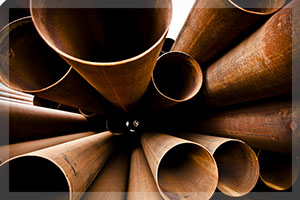I’ve overseen thousands of hazardous material shipments by pipe, rail, train, truck and barge across the country as the former administrator of the Pipeline and Hazardous Materials Safety Administration.
By design, the PHMSA review process is deliberately thorough. It is transparent. And it is a proven process with a clear beginning and ending point. A PHMSA review is also typically free from the kind of political distractions that have overshadowed the Keystone XL permit consideration.
There are many reasons why the pipeline should be approved. For starters, approval of Keystone would allow the U.S. to increase its natural gas exports to Europe in order to undercut any attempt by Russian President Vladimir Putin to cut off energy supplies to Ukraine and other European customers.
Retired Gen. James Jones, President Obama’s former national security adviser, weighed in last week on the immense significance of Keystone XL in an address to the Senate Foreign Relations Committee: “[Putin] wields energy as a weapon. If we want to make Mr. Putin’s day and strengthen his hand, we should reject Keystone.”
Supporting our allies in Europe is one strong reason to support this project. But there is another.
For decades, our nation’s 2.6 million miles of pipelines have safely transported the majority of our nation’s needed energy, chemical and water resources. Last year alone, the U.S. transported 13.5 billion barrels of crude and refined products. Of that amount, pipeline operators safely delivered these supplies 99.999952 percent of the time.
Pipelines have become subject to intense scrutiny and oversight, yet time and time again, pipelines have proven the most reliable form of transporting resources. According to my analysis of federal government statistics, pipelines are 16 times safer than rail and 189 times more secure than commercial motor vehicles when comparing freight tons shipped. Pipelines are also 451 times safer than rail on a per-mile basis and 29,280 times more reliable than other modes of transportation.
As a nation dependent on fossil fuels, our goal should be to transport those resources in the most efficient and safest manner possible. And part of that responsibility involves both maintaining and increasing the available pipeline infrastructure. The resources Keystone will transport are indispensable and will be bought to market regardless of whether Keystone is built — a fact supported by the State Department’s environmental impact review. It is logical, then, to ensure these resources are safely transported in a brand-new, state-of-the-art pipeline.
As a former chief pipeline regulator, I support the approval of Keystone XL. The Keystone XL is the final leg of an existing pipeline system, responsible for the safe transportation of hundreds of thousands of barrels of oil every day from Canada to refineries along the Gulf Coast. After five years, this is one of the most carefully scrutinized infrastructure projects ever considered and it’s overwhelmingly supported by the majority of Americans, organized labor and the beneficiaries of the thousands of potential jobs. And based on State’s own reviews, building Keystone XL wouldn’t significantly add to global greenhouse gas emissions.
There’s no logical reason this project should be denied. It is clearly in America’s international interest to shift global energy supplies westward and away from Moscow. And domestically, there are no good reasons to allow political considerations to sacrifice safety in energy transportation.
Brigham McCown is CEO of Nouveau Inc. and a former administrator of the Pipeline and Hazardous Materials Safety Administration. Thinking of submitting an op-ed to the Washington Examiner? Be sure to read our guidelines on submissions for editorials, available at this link.
Share this article on Facebook or Twitter
Print this article






